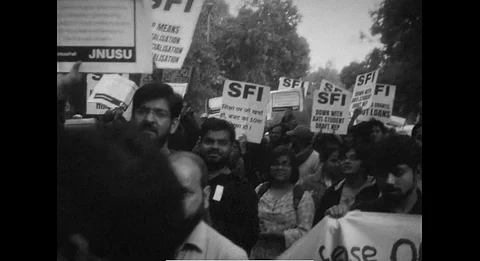

Hours after filmmaker Payal Kapadia made history as the first Indian to clinch the prestigious Grand Prix at the 77th Cannes Film Festival, her alma mater Film and Television Institute of India (FTII) issued a statement calling it a “moment of pride” for the institute. Prime Minister Narendra Modi said “India is proud of Payal” for her historic feat, while Union Minister Anurag Thakur too rushed to take credit. Anurag congratulated the “FTII alumnus,” stating that her film All We Imagine As Light was co-produced by the Ministry of Information and Broadcasting and supported by its Film Incentive Scheme. The film was a joint production between India and France, under a treaty between the two countries, and India contributed 30% of the qualifying co-production expenditure.
But how much credit can the Bharatiya Janata Party (BJP)-led Union government really take for the success of All We Imagine as Light? The attempts by the government and the FTII to stake claim on the team’s achievements undermines, if not negates, the efforts made by the director to arrive at this point of success. This becomes especially clear if we look at her documentary that preceded All We Imagine as Light — A Night of Knowing Nothing, which won the Oeil D’Or or theGolden Eye award equivalent to the Palme D’Or for feature films in 2021.
A Night of Knowing Nothing documents the student protests at FTII in 2015 against the appointment of Gajendra Chouhan, a television actor who portrayed Hindu mythological characters in the 1980s and is linked to the ruling BJP, as the head of the institute. Payal was slapped with disciplinary action in 2015 for her role in the protest, following which the FTII also cut her grant. As Academy Award winning sound designer Resul Pookutty pointed out, Payal is scheduled to appear for a court hearing next month in the case that the FTII lodged against her. “Interesting, isn’t it?” he asked.
Payal’s documentary, through letters written by an unidentified student of the FTII, sheds light on the BJP government’s attempts to curtailing students’ rights in central universities. Found in a box containing newspaper cuttings, dried flowers, and memory cards, the letters written by a student ‘L’ to her estranged lover evoke a sense of longing, hope, and struggle for freedom.
“Our protest is not just against these few appointees,” a student leader could be seen saying in the film. “Our opposition is towards all these political appointments that this government is making in all public institutes since the past one year they have come into power. All these people are associated with a certain ideology. If anybody questions their ideology, they are jailed. If someone questions the religion, they are beaten. If anyone makes a film that doesn’t suit their ideology, it is banned.” The film also examines how the jibe “anti-national”, used by BJP leaders including PM Modi for students of the Jawaharlal Nehru University (JNU), became a collective slur at dissenting students. “Those protesting against the appointment of Mr Gajendra Chauhan are anti-Hindu. Those people who are questioning the appointment must be joking or mentally ill. It is quite clear that all they want is to promote their anti-Hindu agenda,” a leader could be heard stating in the background. As a mark of protest against this idea, Payal Kapadia includes a line from the letter, “I believe that students are at the frontline of the fight against this fascist government.”
The documentary highlights several newspaper clippings, some of which read “Gujarat continues to burn; nine killed, army called in”, “Modi heads for landslide win in India”, and “Journalist who spoke her mind is shot dead”, among others. The protagonist says one such clipping that will never leave her is the death of Rohith Vemula in January 2016. “Prime Minister Narendra Modi said that India has lost her son. But we have another question to be put before Mr. Modi. If India has lost her son, the same son was branded anti-national. The same son was branded as a casteist because he was fighting casteism. The same son was branded as an extremist by your cabinet minister sitting alongside you Union Minister for Labour and Employment Mr Bandaru Dattatreya,” a student leader says, addressing the media, in the film.
A Night of Knowing Nothing also calls attention to the horrific nature of attacks on Students Federation of India (SFI) leader Aishe Ghosh and other JNU students allegedly by Akhil Bharatiya Vidya Parishad (ABVP) students in January 2020. One of the scenes features a protest against the contentious National Educational Policy, introduced by the BJP. “The last time I was here to protest was during our strike. It could very well be that protest, just the banners have changed,” a letter reads, serving as a reminder to Narendra Modi and his ministers that this is the politics that lies at the heart of Payal Kapadia’s success in Cannes 2024.
Views expressed are the author's own.